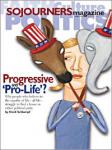Countries in the Global South forged alliances against U.S. and European bullying during last fall’s WTO meeting in Cancun. Two months later, in negotiations for the proposed Free Trade Area of the Americas, U.S. negotiators were forced to back off again from some of their most draconian demands.
The U.S. response? The Central American Free Trade Agreement, a pact hastily negotiated with easily intimidated neighbors and slated for a vote in the U.S. Congress as early as June. The intended message of the agreement with Guatemala, Nicaragua, Honduras, Costa Rica, El Salvador, and possibly the Dominican Republic is that the rest of Latin America had better toe the line or risk being left in the cold. But the fight against CAFTA in Congress—a fight that, in this election year, can be won—offers the perfect opportunity to send a far different message: that trade pacts must consider the welfare of citizens, not just of big business.
According to Angel Rivera of the Latin American Council of Churches, "churches are worried about the increase of poverty NAFTA has created in their fellow Mexican churches and how CAFTA is reproducing the same institutions on this treaty." They—and we—have good reason to worry.
Ten years of NAFTA have shown that "free" trade agreements increase the profits of large corporations, and also poverty, wealth inequality, and undocumented migration to the United States. From NAFTA’s start in 1994 until 2002, Mexico gained half a million (mostly unskilled and low-wage) manufacturing jobs—but, to date, the country has lost 1.3 million rural farm jobs as government-subsidized U.S. corn flooded the Mexican market. (Meanwhile, as agribusiness profits doubled or tripled, 33,000 small farmers in the United States went bust in the first seven years of NAFTA alone.) The top 10 percent of Mexicans saw higher incomes, while the rest saw their incomes stagnate or go down. And, in the past few years, many of the jobs Mexico did get have moved to China, never to return. Sound familiar?
NOW IMAGINE what effect CAFTA will have on, say, Nicaragua, where 43 percent of people are farmers (nearly double Mexico’s pre-NAFTA rate); where rural areas are already hurting from record low coffee prices; where income inequality is already massive; and where years of unjust foreign debt and "structural adjustment" have gutted government social programs. While some U.S. farmers will retain most of their protections, if CAFTA is ratified agribusiness-peddled yellow corn, rice, and other grains will likely destroy the livelihood of many Central American campesinos—inevitably driving some to grow drug crops or to make the dangerous desert crossing away from their families and into the United States.
There’s more—much more. For instance, CAFTA would defend big pharmaceutical companies at the expense of poor countries facing public health emergencies (such as AIDS). Last fall, after years of dragging its feet, the United States was shamed into accepting a WTO agreement that established poor countries’ right to use generic versions of essential medicines (i.e. to "compulsorily license" drugs that are still under patent). CAFTA takes away that right, by a cruel feint: Countries could compulsorily license a generic drug, but could only buy it after the generic drug maker had re-run the costly and time-consuming safety tests already performed by the patent holder. The AIDS epidemic is just getting started in Central America, and the need for lifesaving drugs is sure to grow in the years ahead.
And that’s not to mention the fact that CAFTA, like NAFTA, would give corporations the right to sue a government, in secretive trade tribunals, whenever environmental or health laws affect profits. The threat of a lawsuit has already intimidated Canada into repealing one environmental law.
Church and civil society groups in Central America are organizing and educating against CAFTA, but the best chance of stopping it is in the U.S. Congress. The growing opposition may convince the Bush administration to delay sending CAFTA to Congress. If that happens, voters should follow up on this victory by demanding that this unjust pact be scuttled once and for all.
Elizabeth Palmberg is an assistant editor of Sojourners.

Got something to say about what you're reading? We value your feedback!